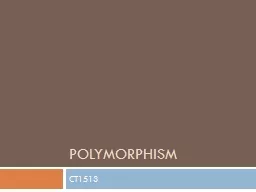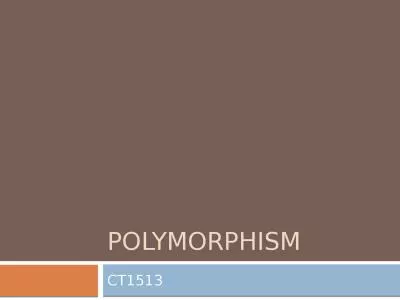PPT-Polymorphism Chapter Eight
Author : gabriella | Published Date : 2023-10-26
Modern Programming Languages 2nd ed 1 Introduction Compare these function types The ML function is more flexible since it can be applied to any pair of the same
Presentation Embed Code
Download Presentation
Download Presentation The PPT/PDF document "Polymorphism Chapter Eight" is the property of its rightful owner. Permission is granted to download and print the materials on this website for personal, non-commercial use only, and to display it on your personal computer provided you do not modify the materials and that you retain all copyright notices contained in the materials. By downloading content from our website, you accept the terms of this agreement.
Polymorphism Chapter Eight: Transcript
Download Rules Of Document
"Polymorphism Chapter Eight"The content belongs to its owner. You may download and print it for personal use, without modification, and keep all copyright notices. By downloading, you agree to these terms.
Related Documents














